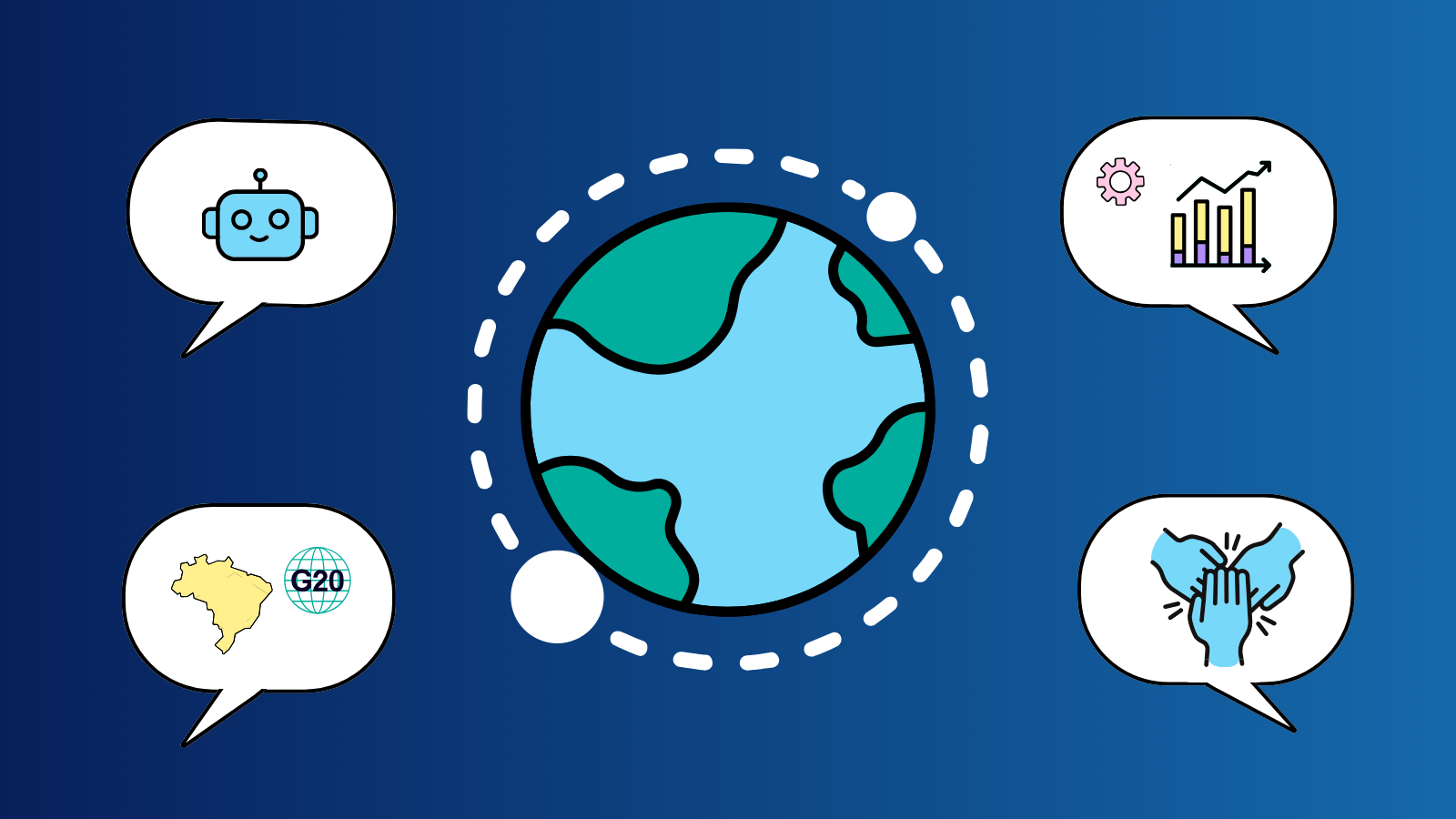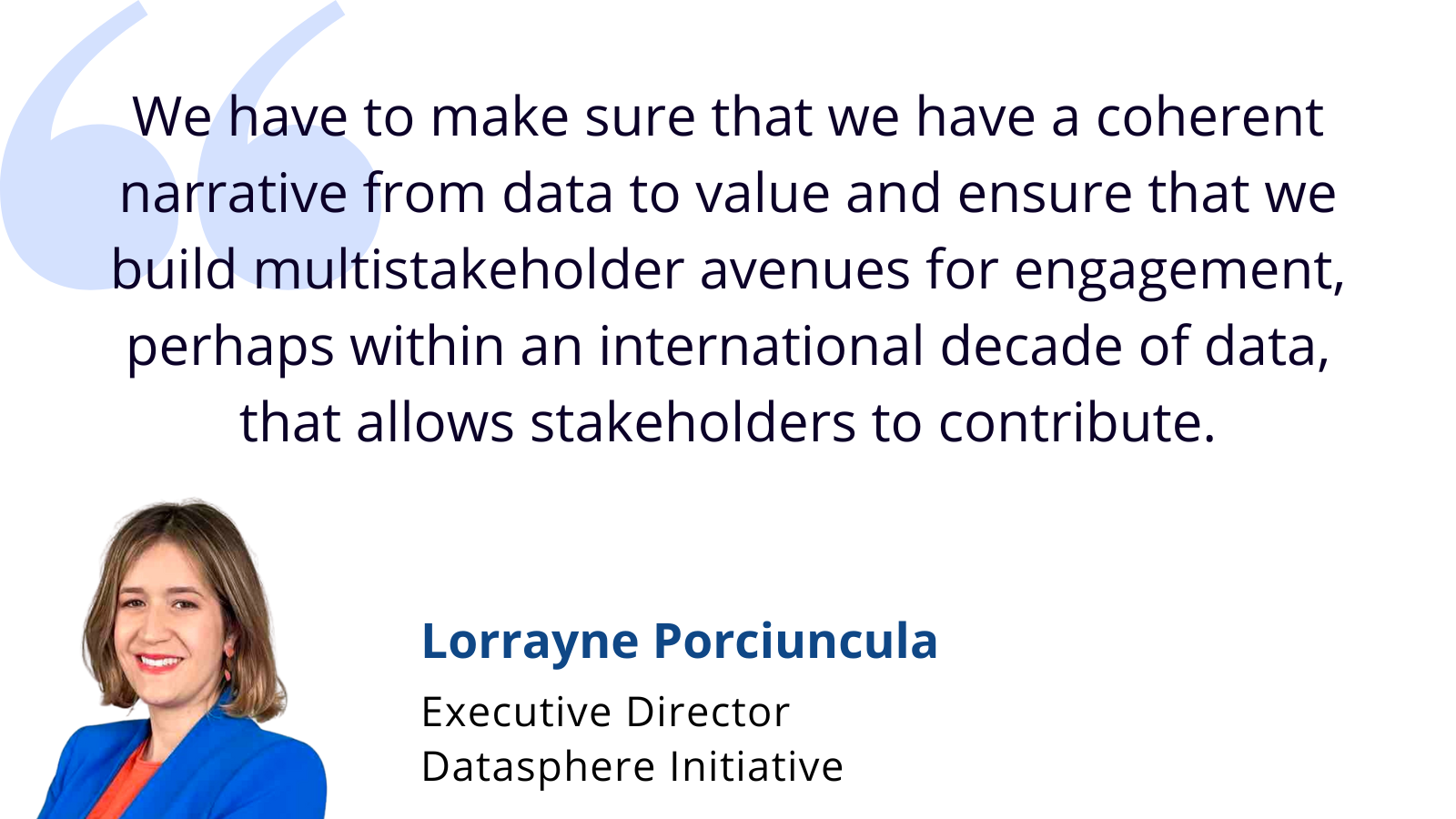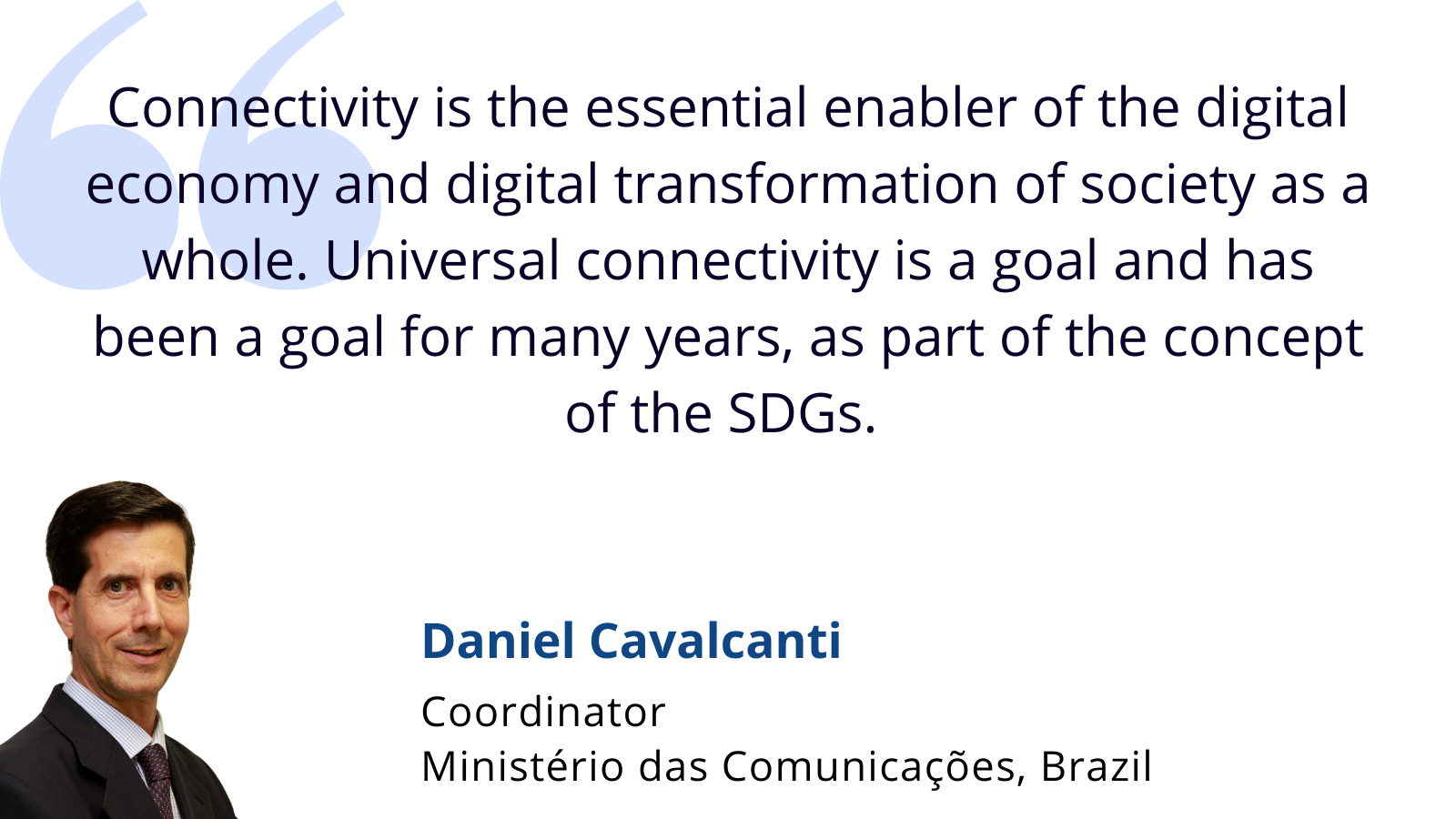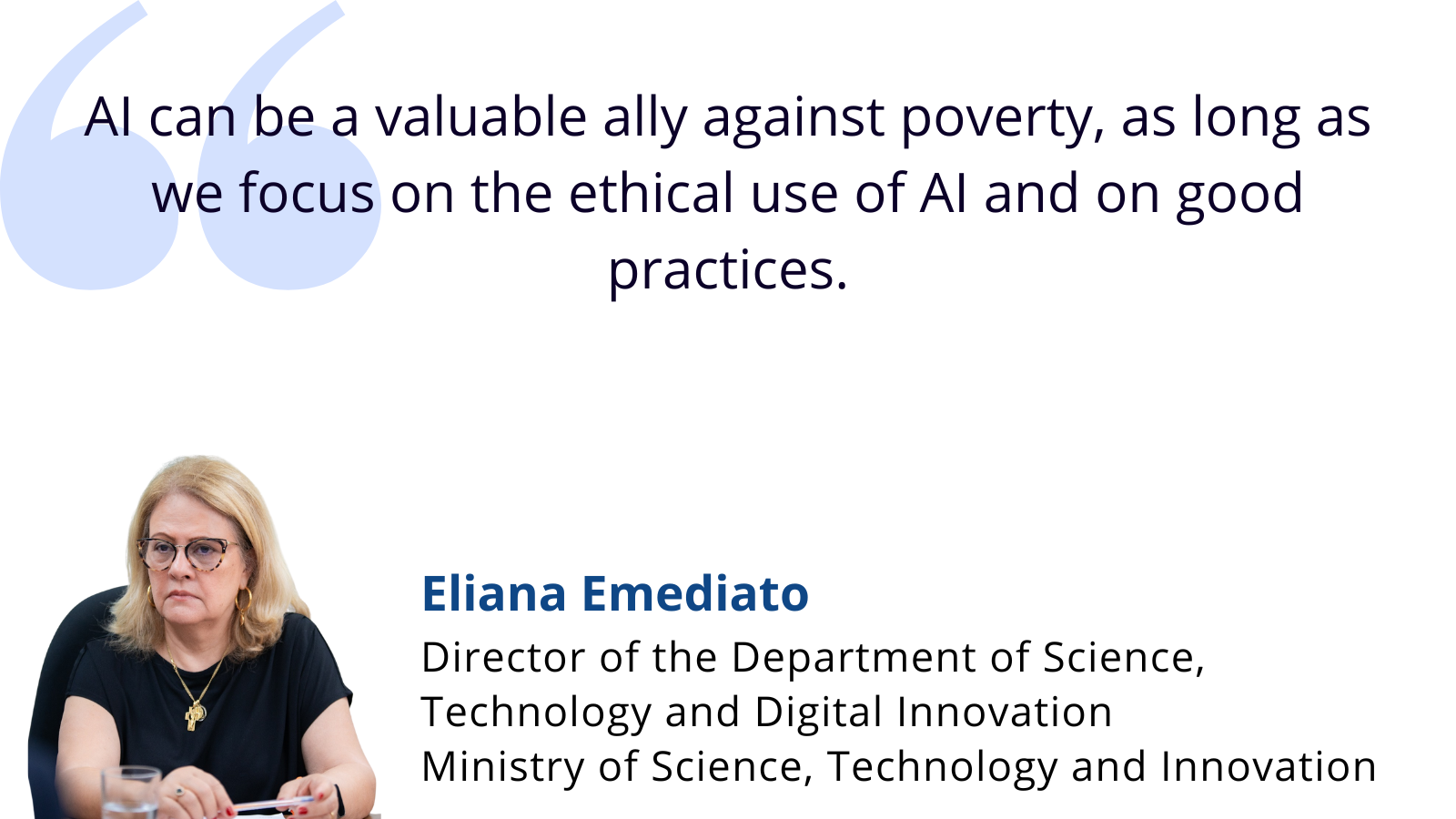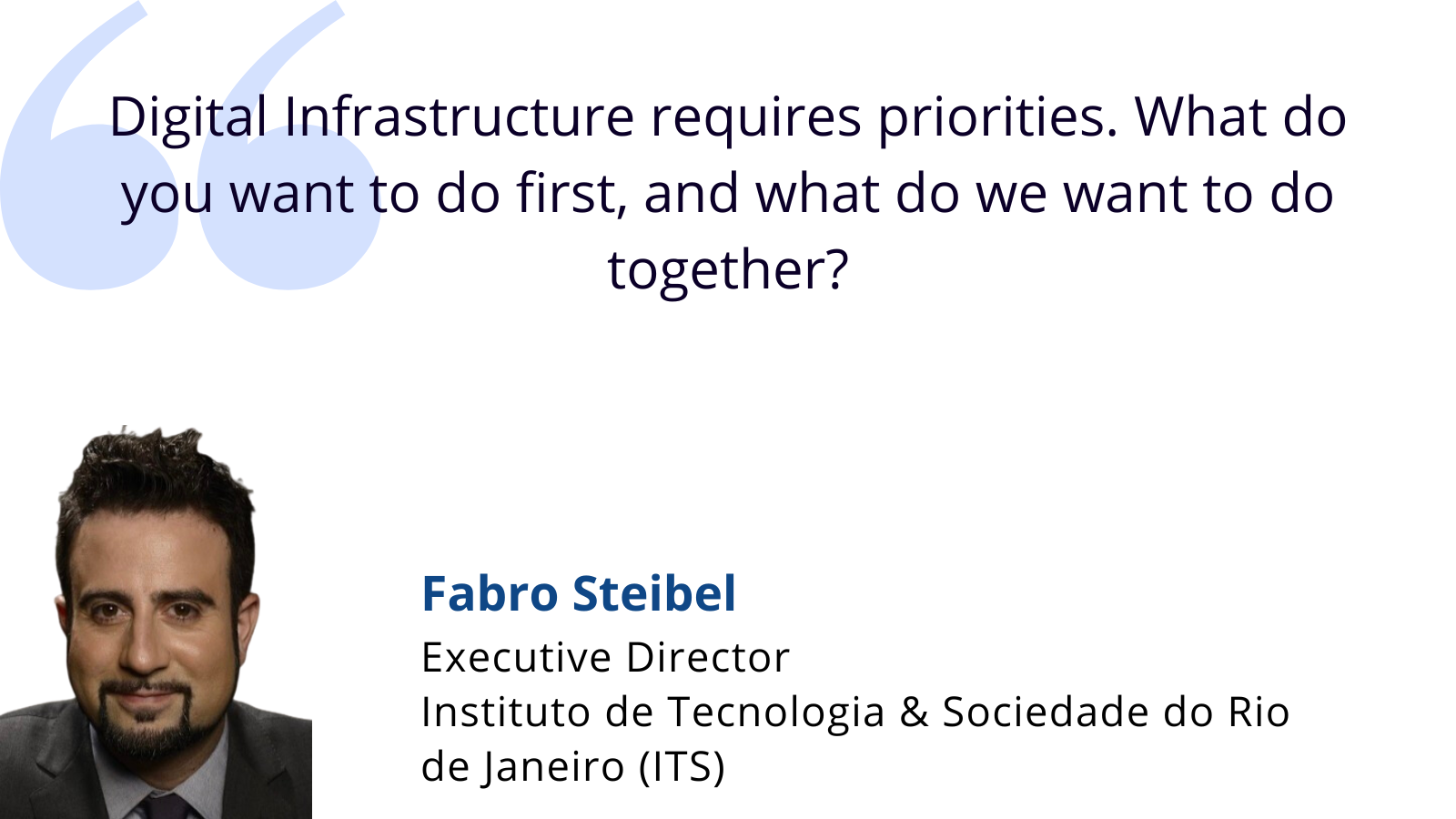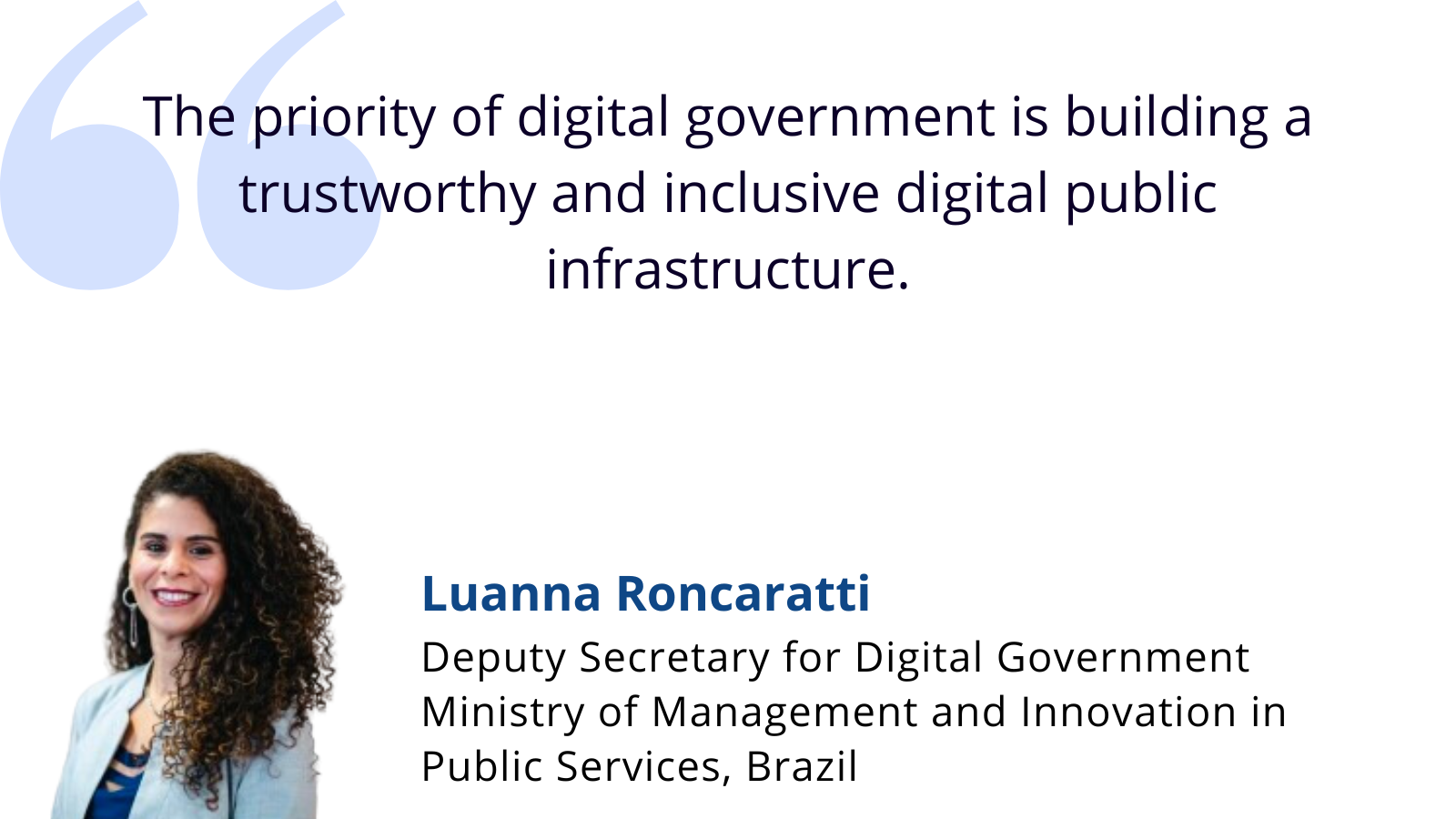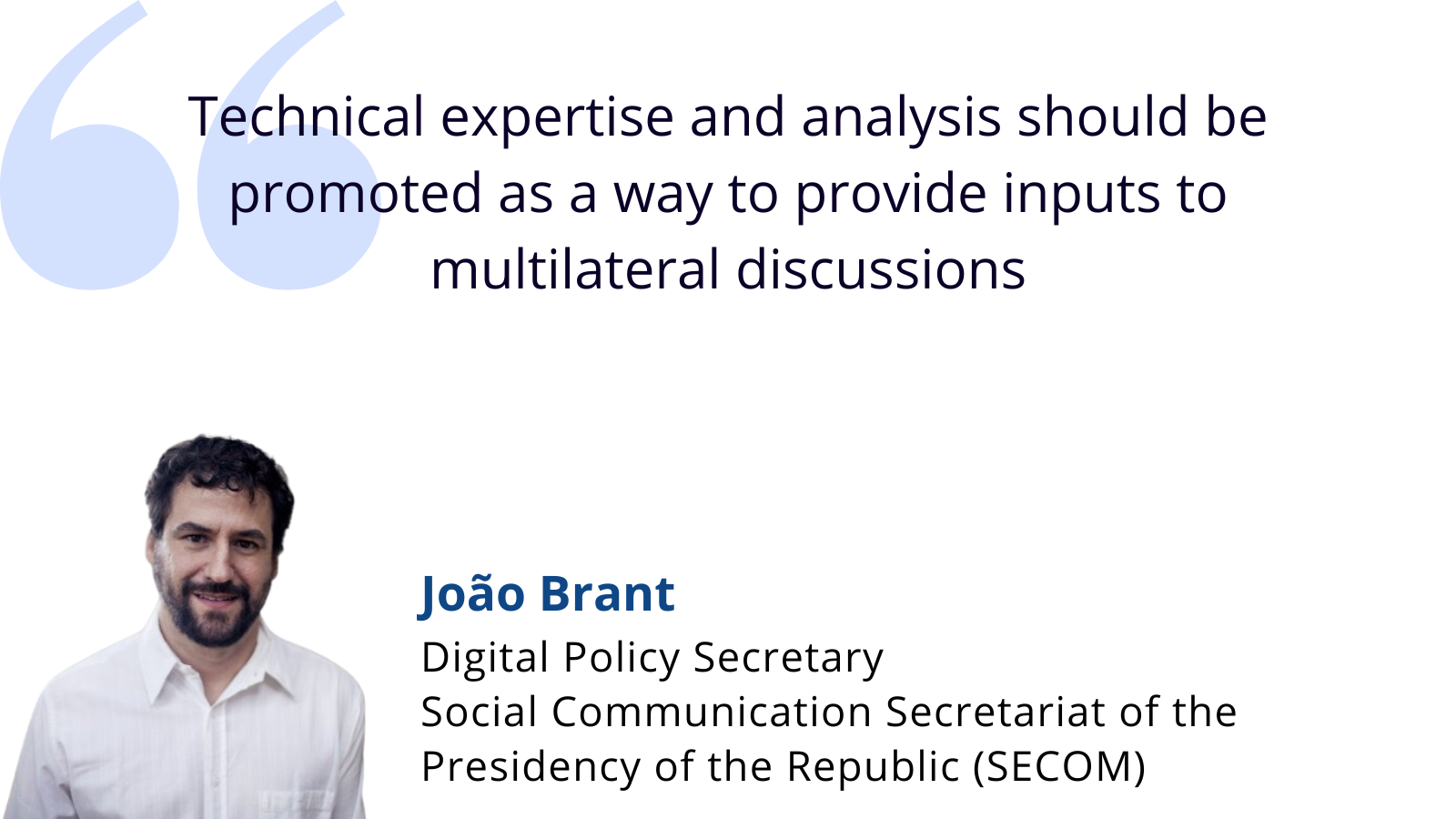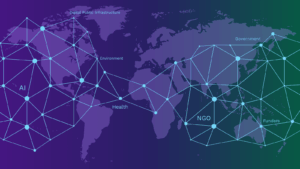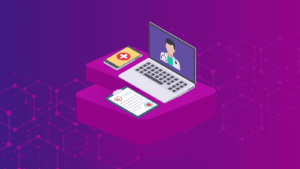Brazil assumed the G20 presidency for one year on December 1, 2023. Brazil is building on the achievements of previous presidencies to continue promoting an inclusive, sustainable, development-oriented, and human-centered approach, with the overarching goals of unlocking the digital economy’s full potential for all, improving people’s lives, and eliminating digital barriers.
In this context, the Datasphere Initiative, Data Privacy Brasil, the Center for Technology and Society (CTS-FGV), and NIC.br co-organized the event “Digital Dialogues: Thinking Together about the G20 Digital Agenda” in Brasilia at Escola Nacional de Administração Pública (ENAP) on February 20, 2024. The event represents the beginning of the work within the “Inclusive Digital Transformation” Task Force of the T20 engagement group (Think20).
Over 300 participants from 35 countries registered to attend the event (more than 200 participants attended online and around 100 in person) to discuss topics around the priorities of the Brazilian Presidency of the G20 related to the digital agenda. The event counted with the participation of 50 speakers, including the leads of the T20 tracks and representatives of the other core G20 engagement groups.
The agenda covered the priorities of the G20 Digital Economy Working Group (meaningful connectivity, artificial intelligence, digital government, and information integrity) as well as intersectional issues, such as data for development, climate justice, indigenous rights, gender, and youth. The event also discussed how digital trends affect the priorities and challenges of different stakeholder groups, including businesses, the scientific community, academia, and civil society movements.
Conversations ventured into the importance of universal and meaningful connectivity, emphasizing the need for harmonized indicators, and Brazilian efforts to map the real needs of users. Regarding artificial intelligence, discussions underscored the need for innovative financing mechanisms and addressing infrastructure gaps. With regards to digital government, the discussion centered on the importance of building trustworthy digital public infrastructure (DPI) and the necessity of international cooperation in its development and distribution. Discussions about information integrity also emphasized the role of civil society in shaping digital governance, stressing the need for transparency and multi-stakeholder engagement. Overall, participants and speakers stressed the importance of inclusive processes, international cooperation, collaborative policy formulation, and multi-stakeholder engagement to shape a fair and comprehensive digital agenda that benefits all.
This blog summarizes the key highlights of the conversation.
Multistakeholder Cooperation and Engagement
Participants highlighted the importance of fostering multistakeholder cooperation and establishing clearer avenues for engagement within and beyond the G20 and across stakeholder groups, such as the T20, C20, B20, S20, and W20, among others. There was a consensus on the need for a platform to facilitate connections and include diverse voices in the conversation.
“Bringing the digital agenda and human rights topics to environments like the G20 is a way to shed light on the discussion and bring more accountability.” said Guilherme Canela, UNESCO.
The intersectionality of digital issues with various societal concerns such as climate change, gender equality, LGBTQ+ rights, youth, and children’s issues, and antiracism was also recognized, prompting discussions on how these topics inform each other and need to be incorporated into the heart of the digital agenda.
“We need an environment that propitiates exchange. We need to talk, and build a way and common ground to see AI as the main path for development for the world.” mentioned Betânia Lemos, Escola Nacional de Administração Pública (ENAP).
Catalyzing a mission-oriented process
The discussions underscored the necessity of ensuring that the benefits of the digital and the data economy are accessible to all individuals and communities, not just a privileged few.
“Meaningful connectivity means that you can study, work, and produce innovation, you are not just a consumer, you can produce and consume innovation.” stressed Luca Belli, Center for Technology and Society, FGV Direito Rio.
Although countries like Brazil have reached almost universal connectivity, with most of its population accessing the internet, it remains a challenge to achieve meaningful connectivity. Meaningful connectivity requires critical enabling factors, such as affordability, equipment accessibility, connection quality, and frequent use. CETIC.br and NIC.br have been running a household survey for the last two decades, to understand how the concept of meaningful connectivity has evolved.
“Although we almost have universal connectivity in Brazil, we still don’t have meaningful connectivity We are launching an analytical framework to understand this concept, which is being observed in Brazil in terms of households and individuals.” shared Alexandre Barbosa, CETIC.br.
It was suggested that efforts should be focused on strengthening data governance to support meaningful connectivity, digital government, AI, information integrity, and other cross-cutting topics.
In fact, one of the conclusions was that an International Decade for Data (IDD) could drive investment in data collection, promote data literacy and education, support bridging the digital divide, encourage international data collaboration, and leverage data to advance progress toward the Sustainable Development Goals (SDGs).
“An International Decade for Data provides time to solve complex global challenges, offers a mission and vision for the international community, and promotes a global conversation.” said David Passarelli, Centre for Policy Research, United Nations University (UNU-CPR).
Innovating in multistakeholder cooperation
The use of innovative and agile frameworks was highlighted as a way to address the unpredictable uncertainty and ambiguity prevalent in the current global environment. Approaches and tools such as sandboxes were seen as valuable tools for finding workable solutions more rapidly than through abstract thought experiments, emphasizing the importance of global cooperation and local partnerships in tackling digital challenges effectively.
“We need to experiment with the things we want to have. AI can and should be used to promote good.” said Philipe Moura, Associação Brasileira de Inteligência Artificial (ABRIA).
Next steps
The event’s success highlighted the necessity of continuous engagement and collaboration across various sectors, including academia, civil society, private entities, and government agencies to address complex data and digital challenges in the context of the G20 process.
“We need new means of cooperation, and the G20 and engagement groups are one of these means for us to achieve this cooperation and engagement of all stakeholder groups.” stated Jaqueline Pigatto, Data Privacy Brasil.
To sustain and amplify this momentum, the recommendation is to orchestrate a follow-up event that not only delves deeper into the topics discussed but also expands the avenues for multistakeholder participation.
This potential series of events will serve as a platform to support the work of the T20 and to further foster collaboration, dialogue, and alignment among diverse G20 engagement groups, ensuring their active participation and contribution to the G20 process. As a recommendation to Brazil, participants highlighted that by continuing to open avenues for multistakeholder engagement and an integrated approach to the digital agenda, the country could strengthen its position as a leader in driving the digital agenda globally.
“We have to make sure that we have a coherent narrative from data to value. We have to ensure these technologies are inclusive and equitable, and build multistakeholder avenues for engagement.” concluded Lorrayne Porciuncula, Datasphere Initiative.
- Watch the recording of the event.
- Learn more about the event.
- Access the summary of the event.
